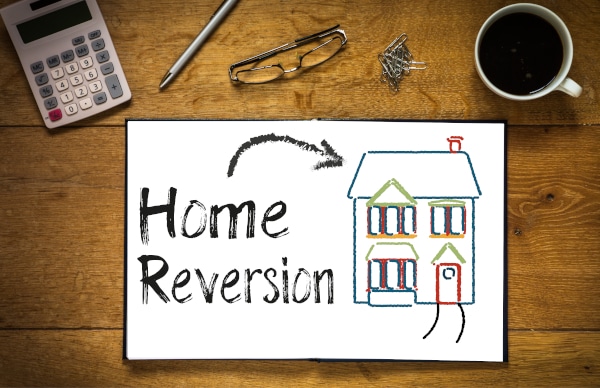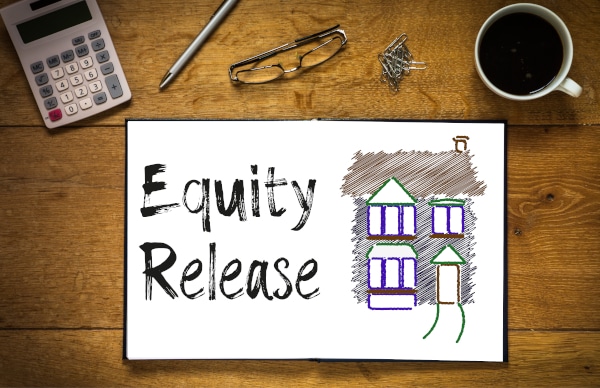Once you reach 55 years of age, you have options if you have equity locked up in your house. When you reach that age, as a homeowner, you have the ability to release the capital locked up in your property. You can do that by taking out a home reversion plan or a lifetime mortgage. We call the process of unlocking the capital equity release.
What is equity release?
When you own a property, the value is in the bricks and mortar. It is likely, if you’ve lived in the house for a long time, that the value of the property now is much greater than your original purchase price. And, if you have a very low mortgage or no mortgage at all, it is likely that you have a vast store of value that is locked up in the property.
Equity release is the process through which the cash locked up in your property is released to you to use as you wish. Your house becomes secured to the organisation providing the cash and the house either reverts to them on your death or the sale proceeds of the house are used to clear the money advanced, plus interest.
What are the benefits of equity release?
Many people go down the equity release route to raise cash to spend in their later years. Many older people want to spend the money on home improvements. They might wish to make their house more comfortable, renew kitchens or bathrooms, put on an extension or install aids should they be infirm.
Others might decide to spend the money on a holiday of a lifetime or gift the money to their children, grandchildren or other family members, perhaps to help them get onto the property ladder.
One key benefit of equity release is that there are no restrictions on what you use the cash for.
What you need to decide if you enter into equity release is whether to take a home reversion plan or lifetime mortgage.

What is a home reversion plan?
A home reversion plan is, perhaps, the less popular option in equity release because it means selling all or part of your home to the equity release provider for less than market value. In exchange, the provider will give you a tax-free lump sum or regular payments.
You can continue to live in the property for the rest of your life or until you enter into long-term care.
There is no interest accrual on a home reversion plan because you are selling all or part of your house to the provider at a discounted price.
What is a lifetime mortgage?
A lifetime mortgage, as the name suggests, is a mortgage or loan over your house. The difference between this type of mortgage and a regular mortgage is that the lender does not expect you to make any repayments.
The amount provided in a lifetime mortgage is much less than would be provided in a traditional mortgage with the interest accruing against the value of your house. As the interest is compounded, the amount will increase over time.
You can borrow a lump sum, regular payments of a mixture of both. You also retain ownership of your property and have the option to make repayments to manage the growth of the loan. Your estate is also likely to benefit from the increase in the value of your house.
What are the key differences between a home reversion plan and lifetime mortgage?
- Ownership: With a lifetime mortgage, you retain full ownership of your home. In a home reversion plan, you sell a portion or all of your property.
- Interest: Lifetime mortgages accrue interest over time, while home reversion plans don’t involve interest.
- Flexibility: Lifetime mortgages generally offer more flexibility in accessing funds and managing the loan.
- Property Value Changes: With a lifetime mortgage, you benefit from any increase in property value on the entire home. In a home reversion plan, you only benefit from value increases on the portion you still own.
- Inheritance: Lifetime mortgages allow more control over potential inheritance by making optional repayments. Home reversion plans offer less flexibility in this regard.
Whichever option you choose, make sure it is approved by the Equity Release Council and that the provider is a member. Equity Release products approved by the Equity Release Council are guaranteed never to outstrip the value of your home.
Specialist Equity Release Solicitors, Glasgow and Livingston
Our experienced solicitors at Wallace Quinn have many years of experience dealing with equity release for our clients. We are able to advise you on all aspects of equity release. For more information, listen to our podcast on equity release and if you would like to know how much legal fees, outlays and expenses will be for the whole process, check out our equity release quote calculator.
If you wish to discuss your eligibility, affordability or what’s involved in equity release, please get in touch with us.
